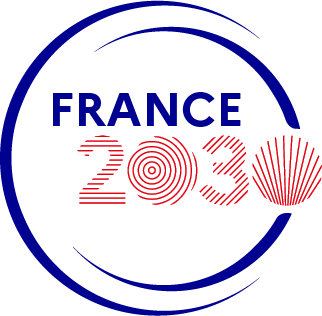

 |
Sylviane PIED |
|
|
Information |
||
| Centre d'Infection et d'Immunité de Lille-CIIL-CNRS UMR 8204-INSERM 1019-Université de Lille-Institut Pasteur de Lille | ||
| Tropical Biomes and Immunopathophysiology-TBIP | ||
| Lille | ||
| 0000-0003-0642-1423 | ||
| This email address is being protected from spambots. You need JavaScript enabled to view it. | ||
| https://www.ciil.fr/teams/tropical-biome-immuno-pathophysiology | ||
|
Scientific interests and projects |
||
|
TBIP scientific activities focus on (co)transmitted protozoan parasitic diseases in French Guiana Amazonia such as Malaria, Leishmaniasis and Toxoplasmosis. We aim at to elucidating common and divergent immune mechanisms associated with severe disease or protection induced by these protozoan parasite infections and their modulation by environmental parameters on disease outcome in the French Guiana Amazonian ecosystem, a region with abundant biodiversity and a multicultural, multiethnic population, in a “one health” strategy by capitalizing on the strength and multidisciplinary character of the new team consisting of clinicians working on the field, experts in molecular parasitology and epidemiology, and immunologists. The open questions this project will answer through a multidiciplinary integrated workprogram combining conceptual and methodological approaches with experimental and clinical studies are the following: what are the mechanisms of natural protective (or anti-disease) immunity that control the parasite and, limit collateral damage to the host? How are these processes impacted by internal (host) and external (environmental) factors? Does and how the parasite genotype influence the protective response? How do multiple co-transmitted parasites interact to give rise to protection or pathogenesis? The French Amazonian region offers the possibility to study these different parameters in an integrated manner in exposed individuals. The project will also function within the framework of the LabEx CEBA: “Center for the study of biodiversity in Amazonia” and in the CNRS “Observatoire Homme-Milieux” OMH Oyapock station (http://ohmoyapock. in2p3.fr). Our project fulfills the objective of the WP2 of the LabEx aiming at UNDERSTANDING PROTECTIVE IMMUNITY AND IMPROVING VACCINE DEVELOPMENT and particularly the specific aims 1) map new modulatory molecules and biomarkers underlying parasite infections and (ii) use immunomics to guide the search for more efficacious vaccines. |
||
|
Top 5 publications of the last 5 years |
||
|
1. Keswani T, Roland J, Herbert F, Delcroix-Genete D, Bauderlique-Le Roy H, Gaayeb L, Cazenave PA, Pied S. (2019) Expression of CD300lf by microglia contributes to resistance to cerebral malaria by impeding the neuroinflammation. Genes Immun. doi: 10.1038/s41435-019-0085-9. 2. Shrivastava SK, Dalko E, Delcroix-Genete D, Herbert F, Cazenave PA, Pied S. (2017) Uptake of parasite-derived vesicles by astrocytes and microglial phagocytosis of infected erythrocytes may drive neuroinflammation in cerebral malaria. Glia. 65(1):75-92. doi: 10.1002/glia.23075. 3. Dalko E, Genete D, Auger F, Dovergne C, Lambert C, Herbert F, Cazenave PA, Roland J, Pied S. (2016) Heme dampens T-cell sequestration by modulating glial cell responses during rodent cerebral malaria. Brain Behav Immun. 58:280-290. doi: 10.1016/j.bbi.2016.07.157. 4. Herbert F, Tchitchek N, Bansal D, Jacques J, Pathak S, Bécavin C, Fesel C, Dalko E, Cazenave PA, Preda C, Ravindran B, Sharma S, Das B, Pied S. (2015) Evidence of IL-17, IP-10, and IL-10 involvement in multiple-organ dysfunction and IL-17pathway in acute renal failure associated to Plasmodium falciparum malaria. J Transl Med. 13:369. doi: 10.1186/s12967-015-0731-6. 5. Blanc AL, Keswani T, Gorgette O, Bandeira A, Malissen B, Cazenave PA, Pied S. (2015) Suppression of CD4+ Effector Responses by Naturally Occurring CD4+ CD25+ Foxp3+ Regulatory T Cells Contributes to Experimental Cerebral Malaria. Infect Immun. 84(1):329-38. doi: 10.1128/IAI.00717-15. |
||
The INSERM workshop “Modern methods in molecular parasitology” will take place in Montpellier, France, from 4–6 November 2026. This event will bring together leading experts in...
The 15th CAPF (French Anti-Parasitic and Anti-Fungal Consortium) workshop will take place on 16–17 March 2026 in Strasbourg (France). This event is an excellent opportunity for students and postdoctoral researchers to participate and contribute...
Call for Applications: New Junior Research Groups at Institut Pasteur The Institut Pasteur has launched an international call to recruit new junior group leaders.This is a unique opportunity for high-potential scientists to...
JOB : Ingénieur·e d’étude / Research Engineer – Mosquito Immunity (IBMC, Strasbourg) 🇫🇷 Le laboratoire Mosquito Immune Responses recrute un·e ingénieur·e d’étude à l’IBMC (Strasbourg). La personne recrutée sera en...
Applications are now open for the 2026 Biology of Parasitism (BoP) course, taking place June 12–July 23, 2026 at the Marine Biological Laboratory in Woods Hole, MA.This intensive 6-week program offers PhD students and postdocs advanced training in...
Newcastle University offers a full-time, fixed-term position (3 years) for a Research Assistant or Research Associate in Molecular Parasitology — funded by the Medical Research Council (MRC). About the Opportunity Location:...
Multidisciplinary PhD opportunity in the fields of infectious diseases, gene regulations and molecular signalisation. Fully Funded 4-Year PhD at the University of York A fully funded PhD opportunity is available at the...
The EMBO Workshop 2025 “Host–Parasite Relationship: From Mechanisms to Control Strategies”, took place from October 5–8, 2025, on the beautiful Île des Embiez (France). Organized within the framework of the LabEx ParaFrap and...
Postdoc (M/F) in molecular and biochemical parasitology (Toxoplasma gondii) A 24-month post-doctoral position starting on January 2026 and funded by the French National Research Agency (ANR) is available in the in the...
Postdoc (M/F) Molecular and cell biology in Trypanosoma brucei A 24-month post-doctoral position starting on November 1st 2025 (or before) and funded by the French National Research Agency (ANR) is available in the...

© 2023. All rights reserved MLCOM
Notre site LabEx ParaFrap utilise des cookies pour réaliser des statistiques de visites, partager des contenus sur les réseaux sociaux et améliorer votre expérience. En refusant les cookies, certains services seront amenés à ne pas fonctionner correctement. Nous conservons votre choix pendant 30 jours. Vous pouvez changer d'avis en cliquant sur le bouton 'Cookies' en bas à gauche de chaque page de notre site. En savoir plus
Ce site utilise des cookies pour assurer son bon fonctionnement et ne peuvent pas être désactivés de nos systèmes. Nous ne les utilisons pas à des fins publicitaires. Si ces cookies sont bloqués, certaines parties du site ne pourront pas fonctionner.
Ce site utilise des cookies de mesure et d’analyse d’audience, tels que Google Analytics et Google Ads, afin d’évaluer et d’améliorer notre site internet.
Ce site utilise des composants tiers, tels que NotAllowedScript699318e4bb157ReCAPTCHA, Google NotAllowedScript699318e4bae12Maps, MailChimp ou Calameo, qui peuvent déposer des cookies sur votre machine. Si vous décider de bloquer un composant, le contenu ne s’affichera pas
Des plug-ins de réseaux sociaux et de vidéos, qui exploitent des cookies, sont présents sur ce site web. Ils permettent d’améliorer la convivialité et la promotion du site grâce à différentes interactions sociales.
Ce site web utilise un certain nombre de cookies pour gérer, par exemple, les sessions utilisateurs.

